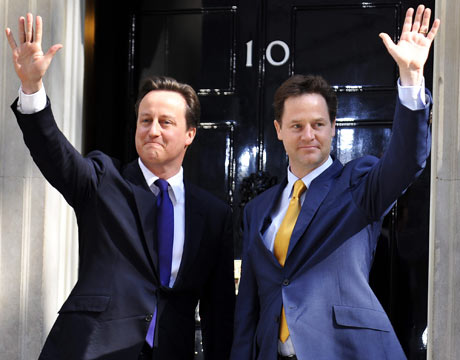The LibDems are dead in the water and there is no way back for them

I have argued here that there are four distinct streams in English politics (the Scots and the Welsh and the Irish are different!) and that the Liberal Democrats are not one of them. Whilst I do not believe that the lack of a coherent political offer was the main reason for the debacle of the LibDems performance in the recent General Election I think that it was a contributory factor and that it is the main reason why there will be no comeback for them – ever.
The LibDems were always a strange construct merging as they did two rather different political philosophies. The Liberal Party became redundant in the post war years hanging on to a few seats for nostalgic reasons, but little more. Labour had replaced the Liberals as the alternative to the Conservatives in the first half of the twentieth century and the Liberals were reduced to a largely irrelevant rump in Parliament. They won only six seats in each of the General Elections in the 1950s. Then a “Liberal revival” of sorts happened and they went to 12 seats in 1966, only to fall back to 6 again in 1970. But under the charismatic Jeremy Thorpe they gained 14 seats and 6m votes in the February 1974 election – the First Past the Post (FPTP) electoral system denied them anything like fair representation. This “revival” was arguably not because they had an attractive alternative political pitch to the Conservatives or Labour but because they (and Thorpe) were the “neither of the above” alternative to Heath and Wilson.
In the early 1980s it was not mainly the Liberals who made progress as a moderate alternative to Thatcher or Foot but the “Social Democratic Party” (SDP) of the Gang of Four led by Roy Jenkins.

A pragmatic electoral Alliance between the Liberals and the SDP happened but again, despite gaining 8m votes in the 1983 General Election (only 2% behind Labour) the FPTP system gave them only 23 seats. They slipped back a little in 1987 and then the two parties merged to form the Liberal Democrats.
Over its twenty-seven years as a distinct party the LibDems made steady progress up to and including the 2010 Election when they polled nearly 7m votes – the highest for a third party since 1983. Hard work on the ground at constituency level had given them a high of 62 seats in 2005 which reduced to 57 in 2010. Then Armageddon !
The essential thing about The Liberals, the Alliance and the LibDems was that they were an alternative to the Conservatives. True they were an alternative to Labour as well, but nearly all the seats that were won were where they managed to drive the Tories into second place. This brought with it a tactical voting benefit - left-leaning voters who might have voted Labour instead voted LibDem where they had a better chance of keeping the Tories out. In the West Country and in South West London particularly you were often either a Conservative or you were LibDem.

When the LibDems went into Coalition with the Conservatives in 2010 there was a reasonably credible case for them to do this in the “national interest” – but for millions of LibDem voters it was a betrayal. If we had wanted a Conservative Government we would have voted Conservative! From that moment on the LibDems goose was well and truly cooked. They slipped to almost nowhere in the opinion polls over the course of the Parliament. Many of us felt that despite this they would hold on to 20-30 seats in the General Election but in fact they fell to a derisory eight. In the seats where the Tories were second the Tories mostly won, and in Scotland they, like the other parties, were all but wiped out by the SNP.
So what now? Why do I say that there is no way back. Well take Richmond Park, a seat that the LibDems won with a majority of nearly 5,000 as recently as 2001. This year the Conservatives had a majority of 23,000. And although other losses were not as drastic as this (Richmond had actually already been narrowly lost in 2010) there is no way that that Constituency is going to come back. And nor will any of the others.
Nick Clegg’s disastrous decision to go into Coalition has destroyed his Party. In England the third Party is now UKIP not the LibDems and whilst a few seats have been held – which broadly takes the Party back to the 1950s - the electoral map has been re-written, and they have been written out. Rural England is almost completely Conservative. Urban England is mostly Labour. Scotland is almost completely SNP. In terms of seats we have a two-party system again in England for the first time for decades – and a one party system in Scotland.
Finally to return to the substantive point. The LibDems are not the “neither of the above” Party any more. UKIP, the Greens are now that (whether this will give them any more seats under FPTP is entirely dependent on whether they select a few seats to work on as the Liberals once did and as the Greens succeeded in doing in Brighton). UKIP and the Greens do have a distinctive offer and most people could describe what it is. The LibDems do not and they will fade away fast.

0 Comments:
Post a Comment
Subscribe to Post Comments [Atom]
<< Home